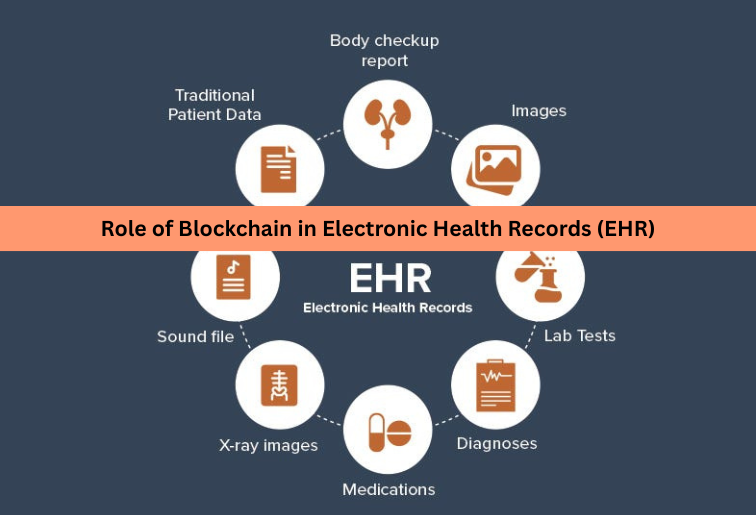The integration of blockchain in healthcare is transforming how Electronic Health Records (EHR) are managed, ensuring security, privacy, and interoperability. With increasing concerns about data breaches and inefficiencies in traditional healthcare systems, blockchain technology provides a decentralized and secure solution.
How Blockchain is Transforming EHR
1. Enhanced Security and Data Privacy
Blockchain in healthcare ensures that patient data is securely encrypted and stored in a decentralized manner. Unlike traditional systems, blockchain minimizes the risk of cyberattacks and unauthorized access. Since every transaction is recorded in an immutable ledger, patient data remains protected from tampering and fraud.
2. Improved Interoperability
Interoperability remains a major challenge in healthcare. Electronic Health Records (EHR) and blockchain integration allow different healthcare providers to access and share patient data seamlessly while maintaining security and compliance. Blockchain’s decentralized nature eliminates data silos and enhances coordination between hospitals, clinics, and research institutions.
3. Data Integrity and Accuracy
Blockchain’s immutable ledger prevents unauthorized modifications to health records. This enhances the reliability of electronic health records (EHR) and blockchain solutions by ensuring that patient histories remain accurate and verifiable. This is especially critical in cases of chronic illnesses, where an unaltered medical history is crucial for treatment decisions.
4. Patient-Centric Access Control
With blockchain in healthcare, patients have greater control over their data. Blockchain allows them to grant access to specific providers, improving patient autonomy and reducing redundant procedures. Through smart contracts, patients can set conditions for data sharing, ensuring privacy while allowing healthcare professionals timely access to critical information.
5. Streamlined Billing and Insurance Claims
Blockchain technology can simplify the billing and insurance claims process by eliminating fraud and reducing administrative costs. By using blockchain in healthcare, transactions become transparent, reducing disputes between insurers, hospitals, and patients. Smart contracts can automate claims processing, ensuring faster reimbursements and fewer errors.
6. Drug Traceability and Clinical Trials
Blockchain can enhance drug supply chain management by tracking pharmaceuticals from manufacturing to delivery, reducing counterfeit drugs in circulation. Additionally, Electronic Health Records (EHR) and blockchain technology can improve clinical trials by ensuring transparent, tamper-proof records of research data and patient participation.
Future of Blockchain in Healthcare
The adoption of blockchain in healthcare is expected to grow as organizations recognize its benefits in managing electronic health records (EHR) and blockchain-based systems. As regulatory frameworks evolve, blockchain could become the standard for secure and efficient health data management.
With continued innovation, blockchain has the potential to revolutionize healthcare by creating a more efficient, transparent, and patient-centric system.
For more insights on blockchain innovations, visit Blockchain77.

